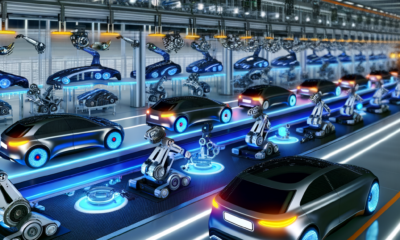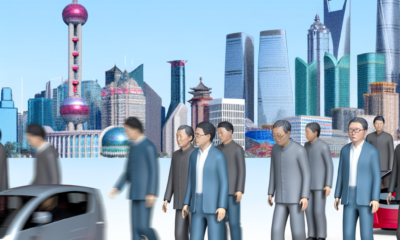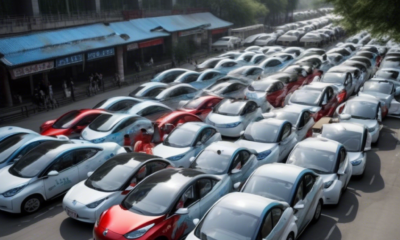China
Driving the Future: Unveiling the Dynamics of China’s Top Automotive Market Amidst EV Revolution and Strategic Alliances
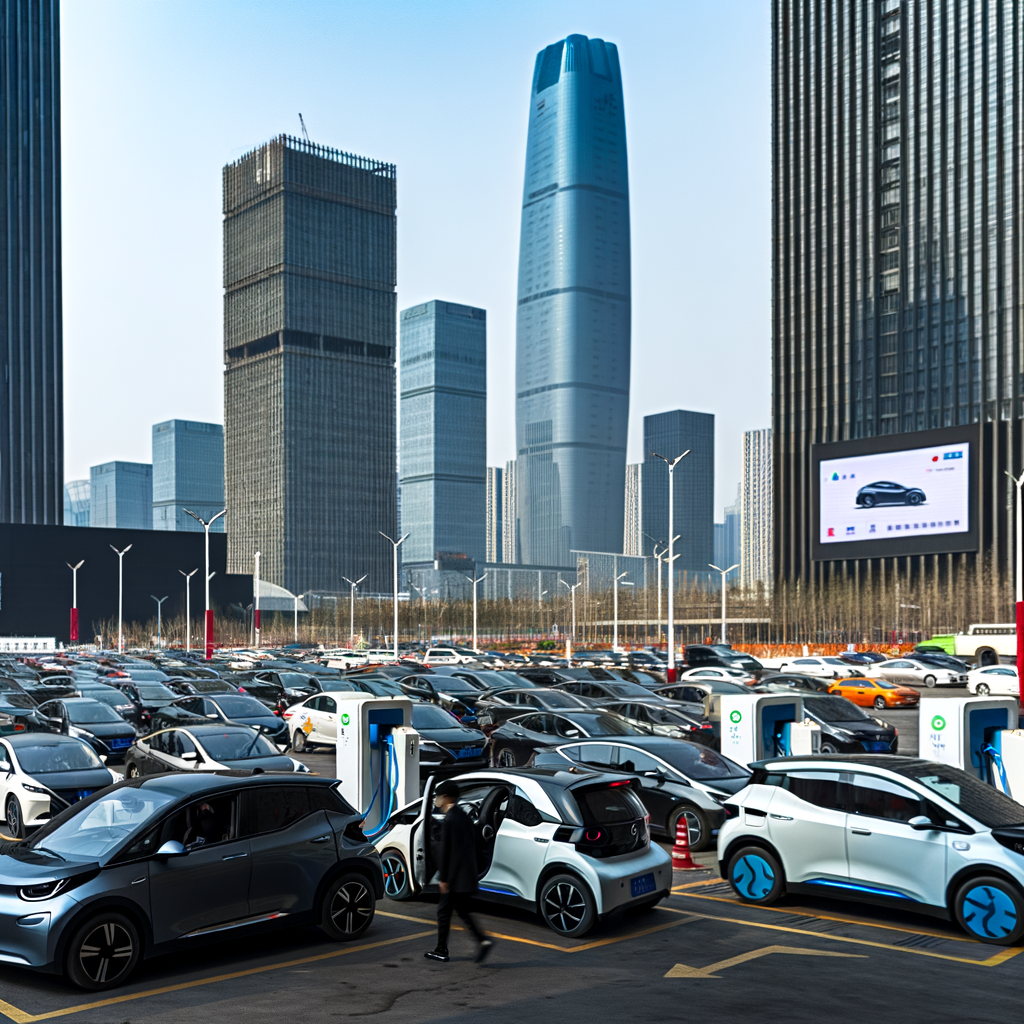
China has solidified its position as the top and largest automotive market, leading the global shift towards Electric Vehicles (EVs) and New Energy Vehicles (NEVs) due to its growing economy, urbanization, and environmental concerns. With government incentives encouraging the adoption of sustainable vehicles, both foreign automakers and domestic car brands are actively participating through joint ventures to navigate the regulatory landscape and meet consumer preferences. The focus on technological advancements and strategic partnerships allows for competitive market entry and innovation, making China a pivotal player in the future of greener transportation solutions amidst intense market competition.
In the heart of the global automotive industry's evolution, China stands tall as the largest automotive market in the world, a position it has earned through a blend of its rapidly growing economy, an expanding middle class, and accelerated urbanization. This titan of industry not only leads in production and sales but has also become a pivotal battleground for both domestic car brands and foreign automakers eager to tap into its vast consumer base. The allure of the Chinese market is undeniable, with its high demand for electric vehicles (EVs) and new energy vehicles (NEVs), spurred by strong government incentives and mounting environmental concerns. These factors paint a complex yet fascinating picture of a market at the crossroads of tradition and innovation, where understanding the regulatory landscape, consumer preferences, technological advancements, and the art of forming strategic partnerships is key to unlocking success.
This article delves into how foreign automakers are navigating the intricate regulatory landscape and forging strategic partnerships to excel in the world's largest automotive market. It explores the electric dreams fueling the EV and NEV sector's growth, driven by urban realities and consumer preferences that are shaping the future of mobility in China. With a focus on the dynamic and competitive nature of the market, influenced by government policies, market competition, and global economic trends, we uncover the strategies that top players are employing to thrive in this lucrative but challenging environment. Join us as we unravel the complexities of the China automotive market, a beacon of opportunity powered by innovation, strategic foresight, and a deep understanding of the road ahead.
- 1. "Navigating the Regulatory Landscape and Strategic Partnerships: How Foreign Automakers Excel in the World's Largest Automotive Market"
- 2. "Electric Dreams and Urban Realities: Understanding Consumer Preferences and Technological Advancements in China's Thriving EV and NEV Sector"
1. "Navigating the Regulatory Landscape and Strategic Partnerships: How Foreign Automakers Excel in the World's Largest Automotive Market"
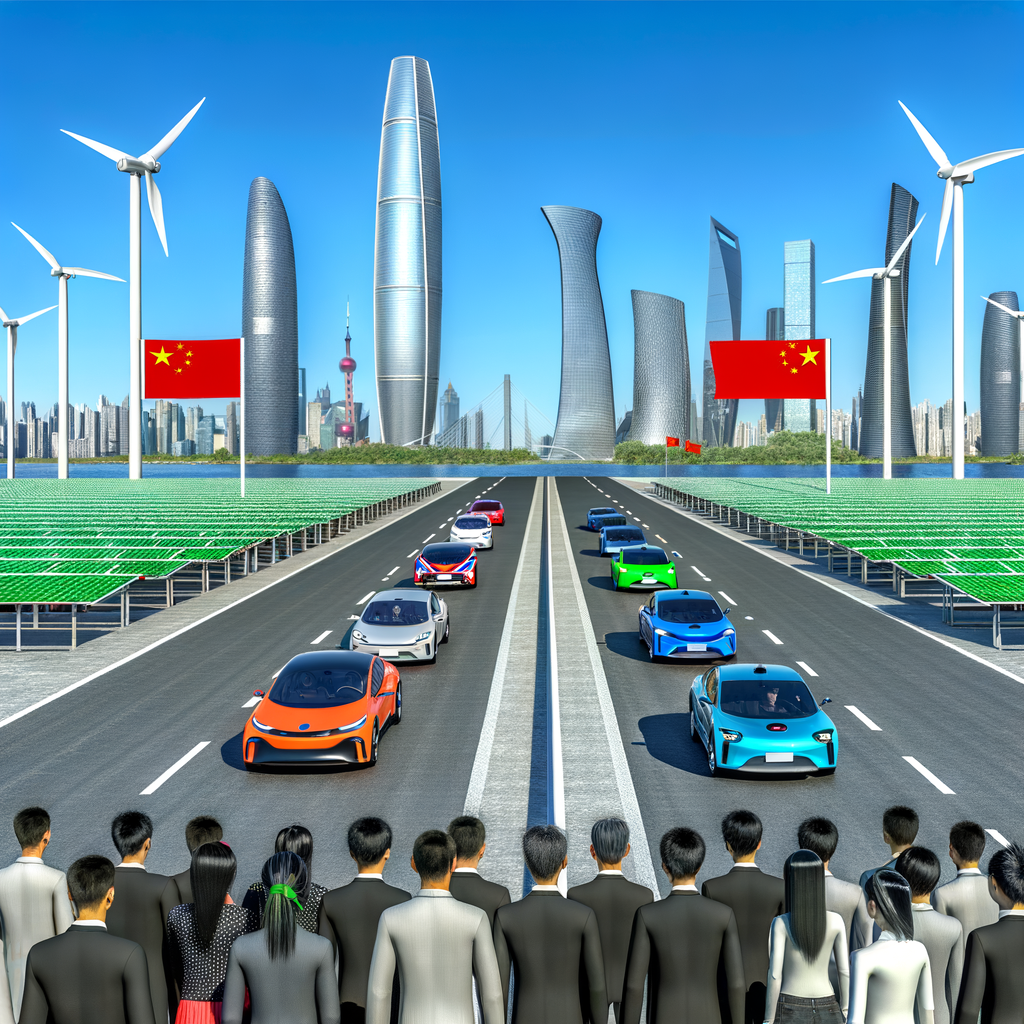
In the realm of the global automotive industry, China stands out as the largest automotive market, a position it has secured through a combination of its growing economy, rapid urbanization, and an ever-expanding middle class. This burgeoning market has not only attracted domestic car brands but has also become a pivotal battleground for foreign automakers aiming to tap into the vast consumer base eager for the latest in automotive innovation, particularly Electric Vehicles (EVs) and New Energy Vehicles (NEVs). These segments, fueled by environmental concerns and robust government incentives, are emblematic of the market's dynamic nature and its shift towards sustainability.
Navigating the complex regulatory landscape of China's automotive sector is a formidable challenge for foreign players. The Chinese government's policies significantly influence market competition and development direction, particularly with its push for EVs and NEVs to mitigate environmental pollution. To excel in this competitive environment, foreign automakers have found that forming joint ventures with local Chinese companies is not just beneficial but often necessary. These strategic partnerships enable international brands to comply with local regulations, garner insights into consumer preferences, and gain access to established distribution networks.
Understanding consumer preferences is another key to success in China's automotive market. The Chinese consumer's appetite for technological advancements in vehicles, combined with a keen interest in environmental stewardship, has propelled the demand for EVs and NEVs. Foreign automakers, by aligning their product offerings with these preferences and leveraging the latest technology, can better position themselves in the market. This alignment, coupled with the advantage of global brand recognition, allows them to compete effectively with domestic car brands.
Moreover, the strategic partnerships formed through joint ventures also facilitate a deeper comprehension of the regulatory landscape. These collaborations often lead to shared insights and resources that are crucial for navigating the intricacies of compliance and market entry strategies. They also provide a framework for innovation and adaptation, enabling foreign automakers to introduce vehicles that are not only technologically advanced but also tailored to meet the specific needs and expectations of the Chinese consumer.
In conclusion, the success of foreign automakers in China's largest automotive market is largely contingent upon their ability to navigate the regulatory landscape, form strategic partnerships with local entities, and align their product offerings with the evolving consumer preferences and environmental concerns. By doing so, they can leverage the growing economy, urbanization, and the shift towards EVs and NEVs, capitalizing on the opportunities presented by the world's most dynamic automotive market.
2. "Electric Dreams and Urban Realities: Understanding Consumer Preferences and Technological Advancements in China's Thriving EV and NEV Sector"

In the heart of the world's largest automotive market, China's embrace of electric vehicles (EVs) and new energy vehicles (NEVs) is reshaping the future of transportation amidst its bustling cities and rapidly urbanizing regions. This shift is driven by a combination of consumer preferences, technological advancements, and a strong push from government incentives, all set against a backdrop of growing environmental concerns and a burgeoning economy.
The Chinese government's commitment to reducing carbon emissions and pollution in urban areas has led to substantial incentives for EV and NEV manufacturers and buyers alike. These incentives, coupled with stringent regulations, have propelled China to the forefront of the EV and NEV markets, making it a hotbed for technological innovations in the automotive sector. The regulatory landscape in China is complex, encouraging foreign automakers to enter strategic partnerships and form joint ventures with domestic car brands to navigate the market effectively. This collaboration has been pivotal in introducing a wide array of electric and new energy vehicles to the Chinese consumer, who is increasingly environmentally conscious and technologically savvy.
Urbanization plays a significant role in shaping consumer preferences within the Chinese automotive market. As cities expand and become more congested, the demand for smaller, more efficient vehicles is on the rise. EVs and NEVs fit this bill perfectly, offering a cleaner, more sustainable mode of transportation that aligns with the lifestyle and values of China’s growing middle class. The technological advancements in battery life, charging infrastructure, and vehicle performance have further bolstered consumer confidence in electric mobility solutions.
Market competition is fierce, with both domestic and foreign automakers vying for a share of this lucrative market. The competition not only drives innovation but also makes EVs and NEVs more accessible to a broader segment of the population. Strategic partnerships between foreign and domestic companies have been crucial in combining international expertise with local market knowledge, leading to the development of vehicles that cater to the specific needs and preferences of Chinese consumers.
In essence, the thriving EV and NEV sector in China is a complex interplay of government policy, consumer behavior, technological innovation, and market forces. The success of electric and new energy vehicles in China is a testament to the country's ability to adapt to and embrace the future of mobility, maai-allcreator.com">king it a leader in the global shift towards more sustainable transportation solutions. As the Chinese automotive market continues to evolve, the focus on electric vehicles and new energy solutions is expected to grow, offering a glimpse into the future of urban mobility in the world's largest automotive market.
In conclusion, the China automotive market stands as the world's largest automotive market, not just in sheer volume but also in its dynamic approach towards embracing technological advancements and sustainable practices. This market's unique blend of rapid urbanization, a growing economy, and environmental concerns has created a fertile ground for both electric vehicles (EVs) and new energy vehicles (NEVs), placing it at the forefront of the global shift towards greener transportation. The presence of domestic car brands alongside foreign automakers, who often enter the market through strategic joint ventures, creates a highly competitive environment that is as challenging as it is rewarding.
Navigating this complex regulatory landscape requires a deep understanding of consumer preferences, which increasingly lean towards eco-friendly and technologically advanced vehicles, bolstered by government incentives. This, combined with the need for strategic partnerships to access the vast consumer base, underscores the necessity for both local and international players to stay agile and innovative. The success in this lucrative market hinges on the ability to adapt to the fast-paced changes in market competition, regulatory requirements, and technological evolutions.
As China continues to lead the way in the automotive sector, its emphasis on electric and new energy vehicles not only sets the stage for a sustainable future but also offers valuable insights into how markets worldwide might follow suit. The China automotive market, with its complex interplay of factors such as urbanization, growing economy, and environmental concerns, continues to be a beacon for how strategic partnerships, understanding of consumer preferences, and adherence to government policies can lead to success in a competitive landscape. For anyone looking to make their mark in the automotive industry, understanding and leveraging the opportunities present in China's market is not just an option, but a necessity in navigating the future of global automotive commerce.
Discover more from Automobilnews News - The first AI News Portal world wide
Subscribe to get the latest posts sent to your email.








